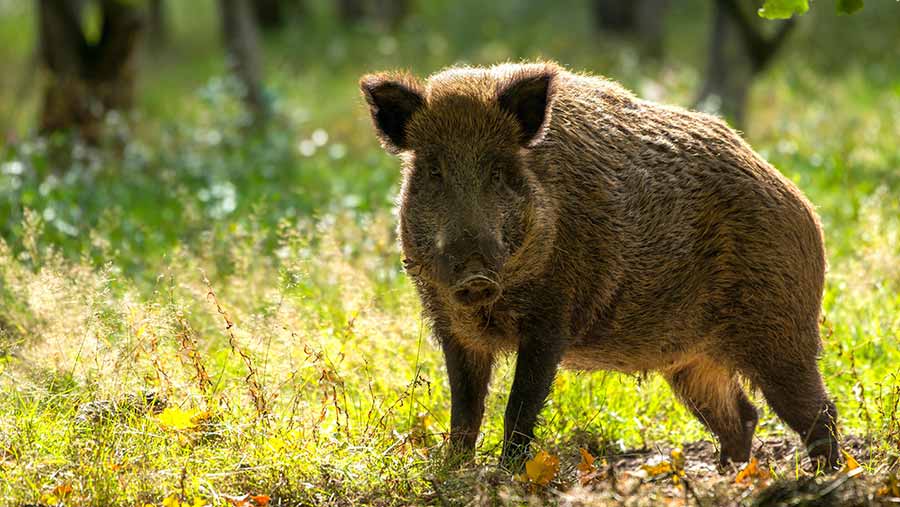ASF crisis grows as China bans German pigmeat
 © Frank Sommariva / imageBROKER/REX/Shutterstock
© Frank Sommariva / imageBROKER/REX/Shutterstock China has banned pork imports from Germany after a wild boar tested positive for African swine fever (ASF) inside the border with Poland last week.
Bans on German pigmeat imports have also been imposed by Brazil, Japan, Argentina, Singapore and South Korea.
Germany exports about 500,000t of pigmeat each year in a trade that is worth more than €1bn (about £921m) annually.
See also: Germany confirms first case of African swine fever
Fears are now mounting that the loss of outlets will see that pigmeat flood back to the EU market, undermining prices.
News of the bans has already seen German pork prices plummet, falling €0.20/kg (£0.18/kg) over the weekend.
National Pig Association chief executive Zoe Davies said the EU was facing serious repercussions that could hit the UK sector.
While the void in China’s supplies could create demand for UK product, the excess pigmeat in the EU could block outlets for British cull sows.
The German cull sow market is the UK’s only outlet for these animals and is worth up to £60m/year to the sector.
But Dr Davies warned it could collapse if the extra pigmeat available was used instead.
She also explained that the UK’s key competitors, Denmark and the Netherlands, faced severe disruption.
The two countries have specialised in recent years to supply weaner pigs to Germany. Combined they have exported 12 million weaners each year to be finished on German pig units.
The bans could put an end to the trade, leaving 12 million growing pigs with no outlet and putting pressure on Danish and Dutch farms.
Widespread infection
Meanwhile, concern over ASF infection levels has grown after five new cases of ASF have been detected in wild boar in the Brandenburg region of Germany close to the Polish border.
It comes after it was first announced on 10 September that a single case of the disease had been detected in a dead wild boar carcass which was also in the region.
The dead boar was female and therefore more likely to have spread the disease. While male boar are solitary animals, females live in large social groups called sounders, explained Dr Davies.
This points to higher infection rates among the boar population in Germany, she added.
German veterinary officials voiced further concern because the animal had lain dead for some months.
“The carcass was only found when a crop was harvested, suggesting ASF has been present in Germany’s wild boar population for some time,” Dr Davies added.
Further details on the EU response to bans and prospects for exports will be discussed by the EU farmer groups Copa and Cogeca on Friday (18 September).
ASF warning
China’s swift response is due to its ongoing battle with ASF in its domestic herd.
Since August 2018, ASF has seen 120 million pigs wiped out in China, either directly by the disease or through slaughter in a bid to control the spread.
The highly contagious disease has spread relentlessly westward and UK officials have repeatedly warned UK producers to increase vigilance and biosecurity.
